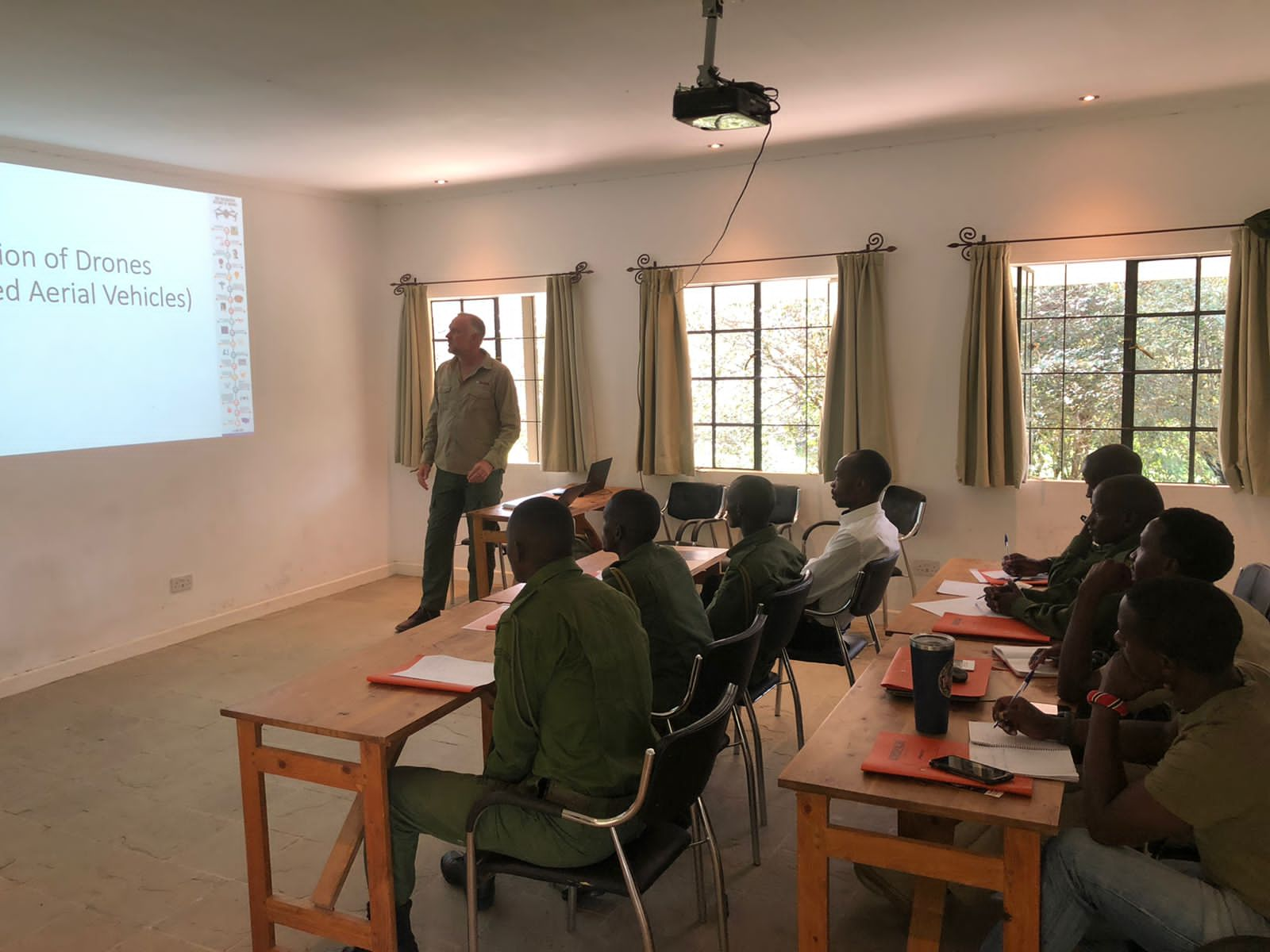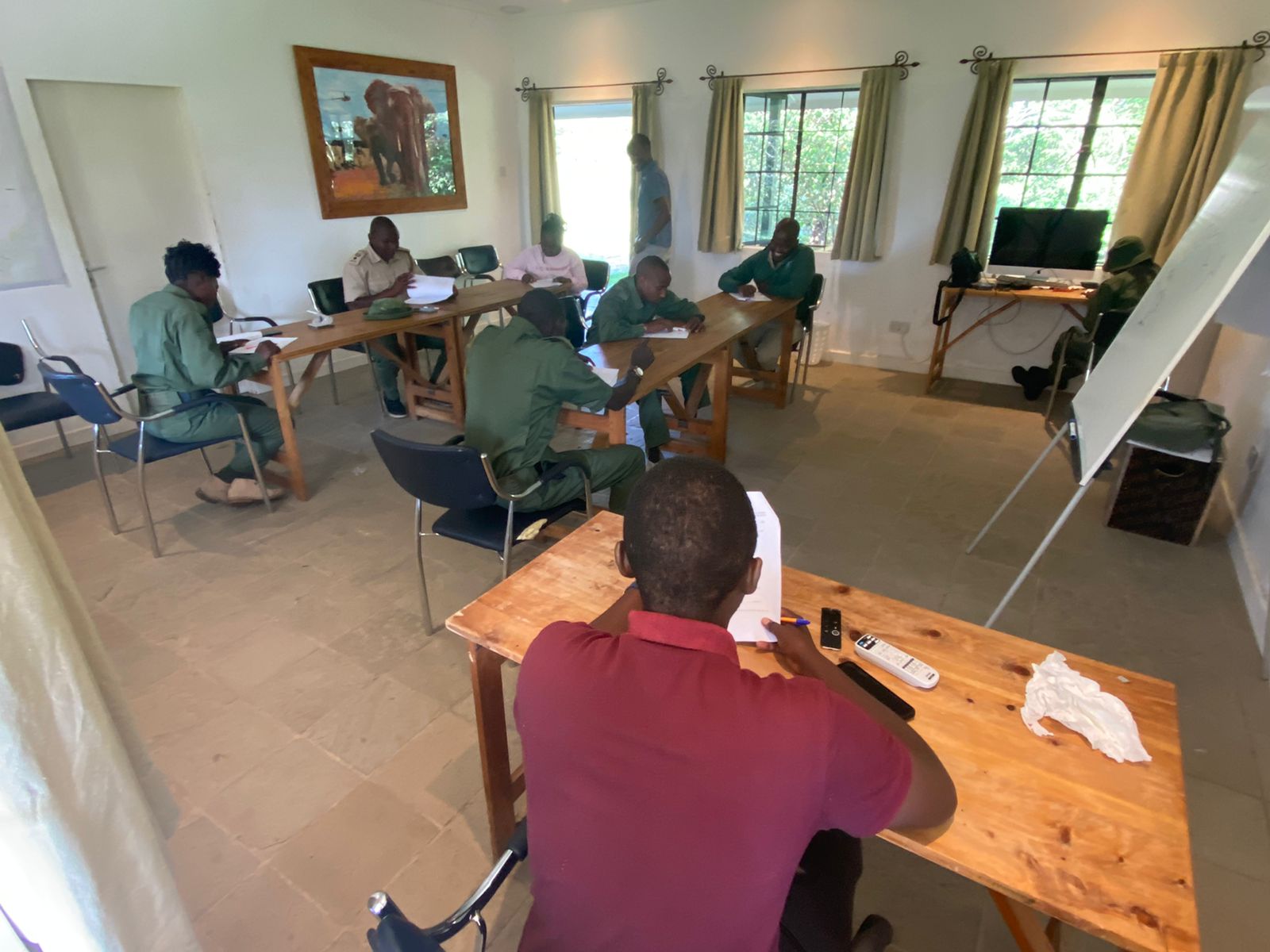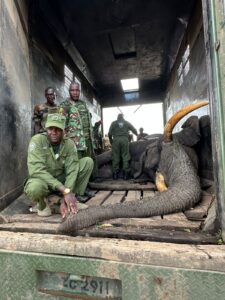The Mara Elephant Project leased helicopter is a critical tool for our organization, and in the second quarter, it was key to many conservation and protection activities. On April 19, I joined MEP Senior Warden Zakayo Lenaeku for an aerial patrol of the Mau Forest alongside government partner Kenya Forest Service. The aerial reconnaissance patrol allowed us to note locations of illegal logging and charcoal making sites and relay them to the MEP/Sheldrick Wildlife Trust (SWT) Mau De-Snaring Unit stationed on the ground. During the patrol, elephants were spotted inside the forest (like finding a needle in a haystack) and we monitored the progress of the reclaimed areas of the forest. From the air, we determined less forest destruction in the reclaimed areas and these areas were showing healthy rejuvenation.
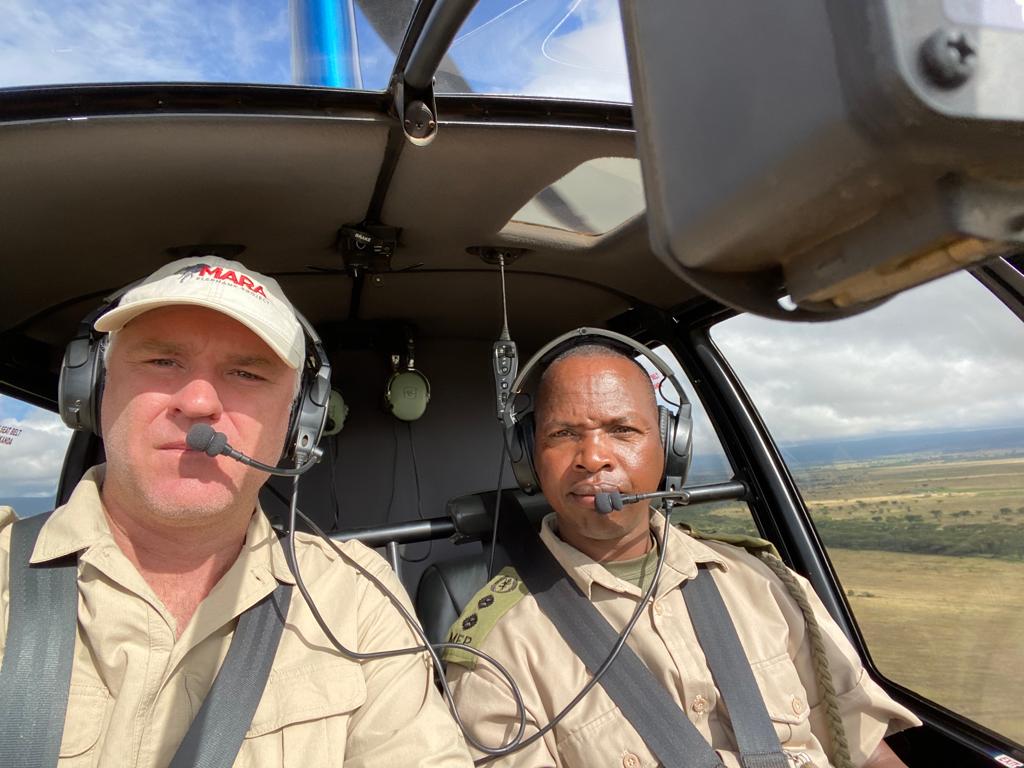
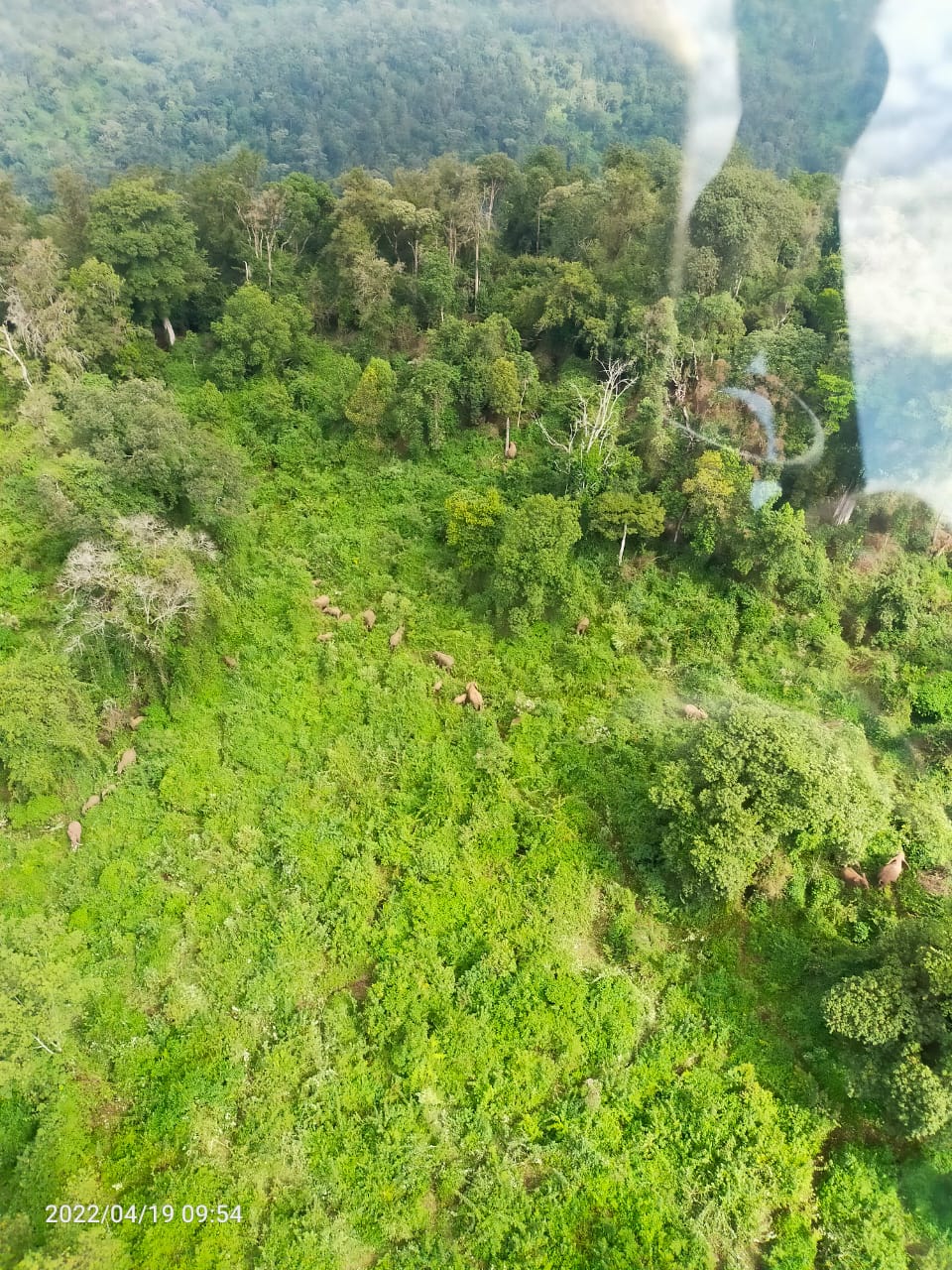
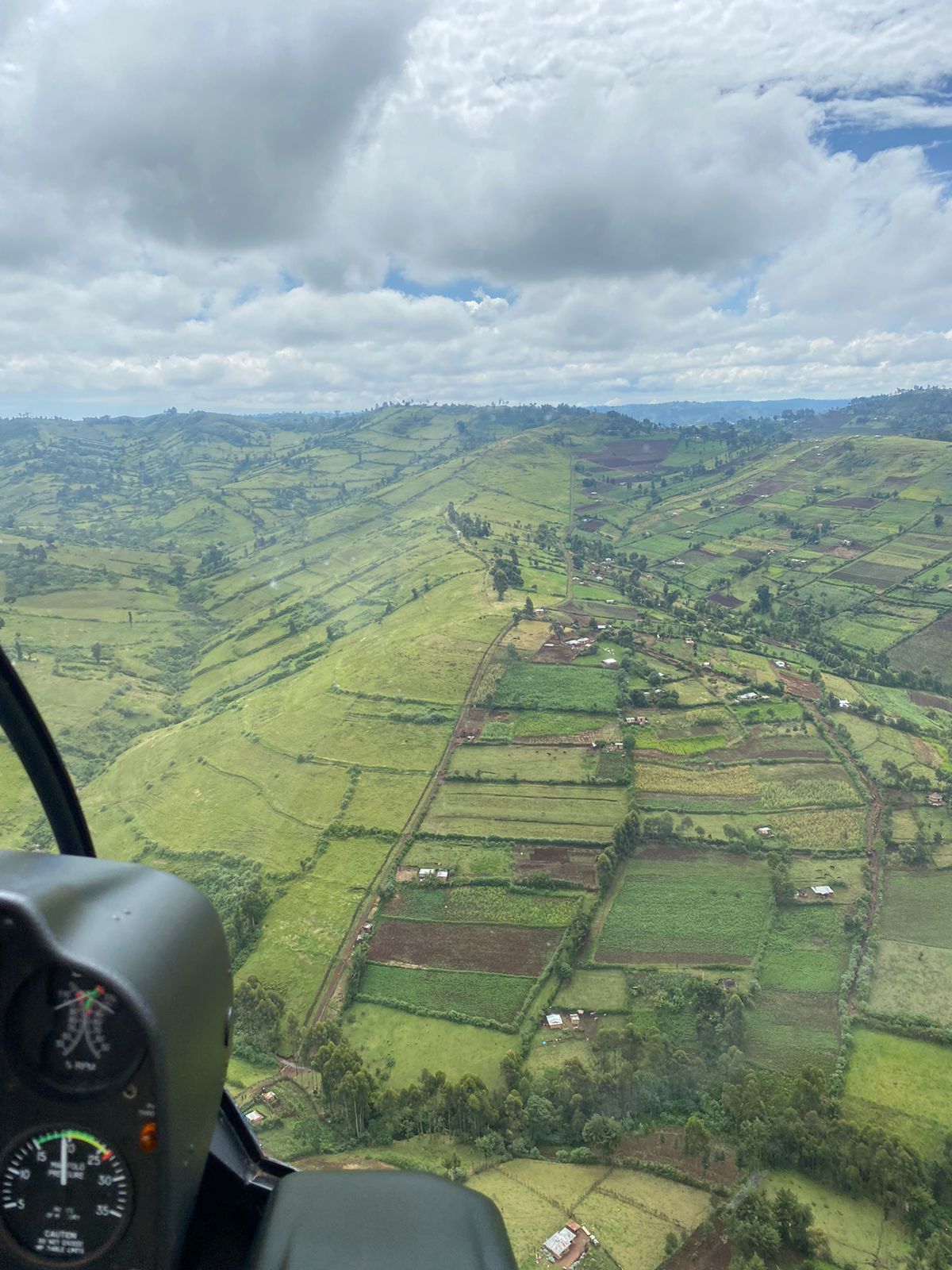
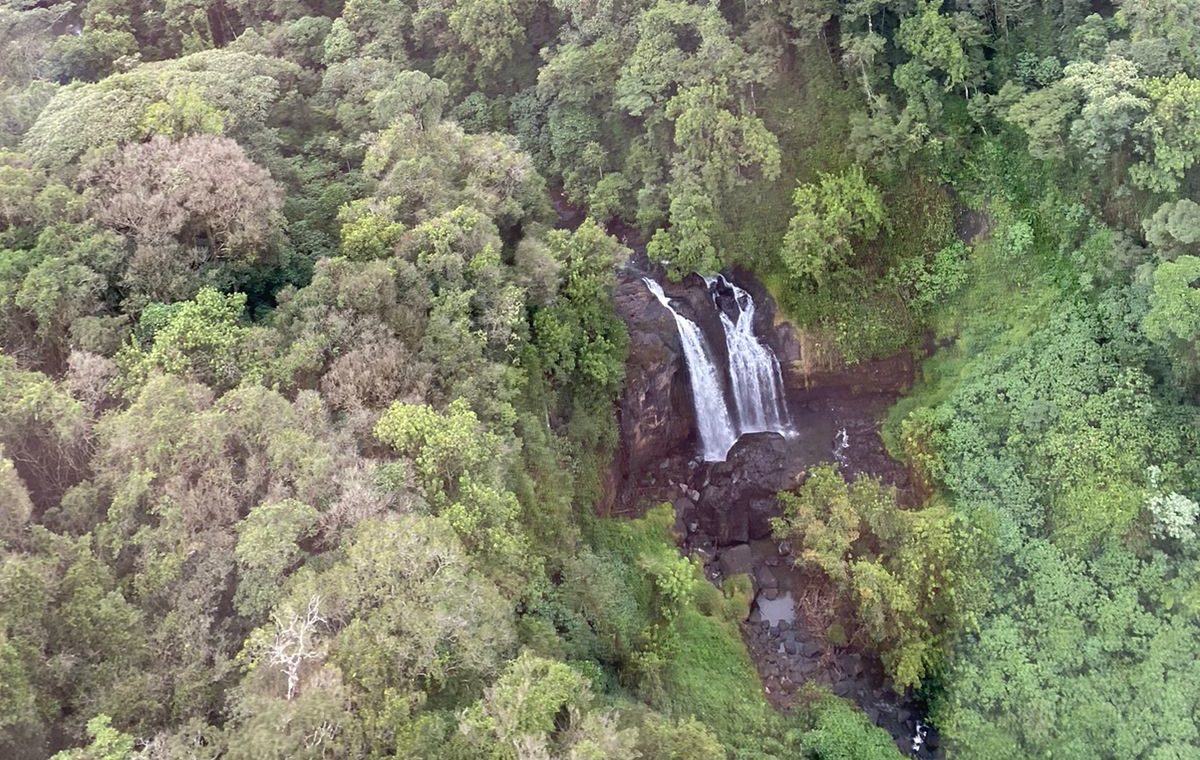
The leased helicopter was also used to assist during the collaring operations for four elephants in the second quarter all alongside our partner Kenya Wildlife Service (KWS) Vet Dr. Ephantus Ndambiri. In April, KWS, Wildlife Research and Training Institute (WRTI) and MEP re-collared Matali not far from MEP’s headquarters. WRTI’s Wildlife Ecologists Stephen Ndambuki alongside MEP’s long-term monitoring (LTM) team assisted with this operation. In May, KWS, WRTI and MEP collared a new female elephant, Audrey, in a high conflict area that is near where collared elephants Clara, Harriet and Natasha reside. MEP Conservation Officer Wilson Sairowua and the MEP LTM team assisted on the ground.
Finally, in June, the MEP leased helicopter was deployed for two collaring operations alongside partners KWS and WRTI. The first took place on June 15, when MEP responded to reports of a very aggressive female elephant attacking motorbikes in an area nearby our headquarters. This type of aggressive behavior was uncommon for an elephant, and this female was a candidate for a collar so that KWS and MEP could track her movements in real time and respond accordingly. The cause of her aggressive behavior was revealed during the collaring operation. During the collaring, we discovered she was missing the footpad on her front left foot which must have hurt her immensely while walking. Dr. Ndambiri treated the abscess and we’re hoping this might help relieve her pain.
The second operation was a re-collaring. Polaris was originally collared in June 2013 by KWS, WRTI and MEP and on June 16, while I was conducting a routine aerial patrol in the MEP leased helicopter, I spotted Polaris and re-collared him in order to track his movements between safe areas, and the land use changes occurring around Pardamat and Ol Kinyei conservancies.

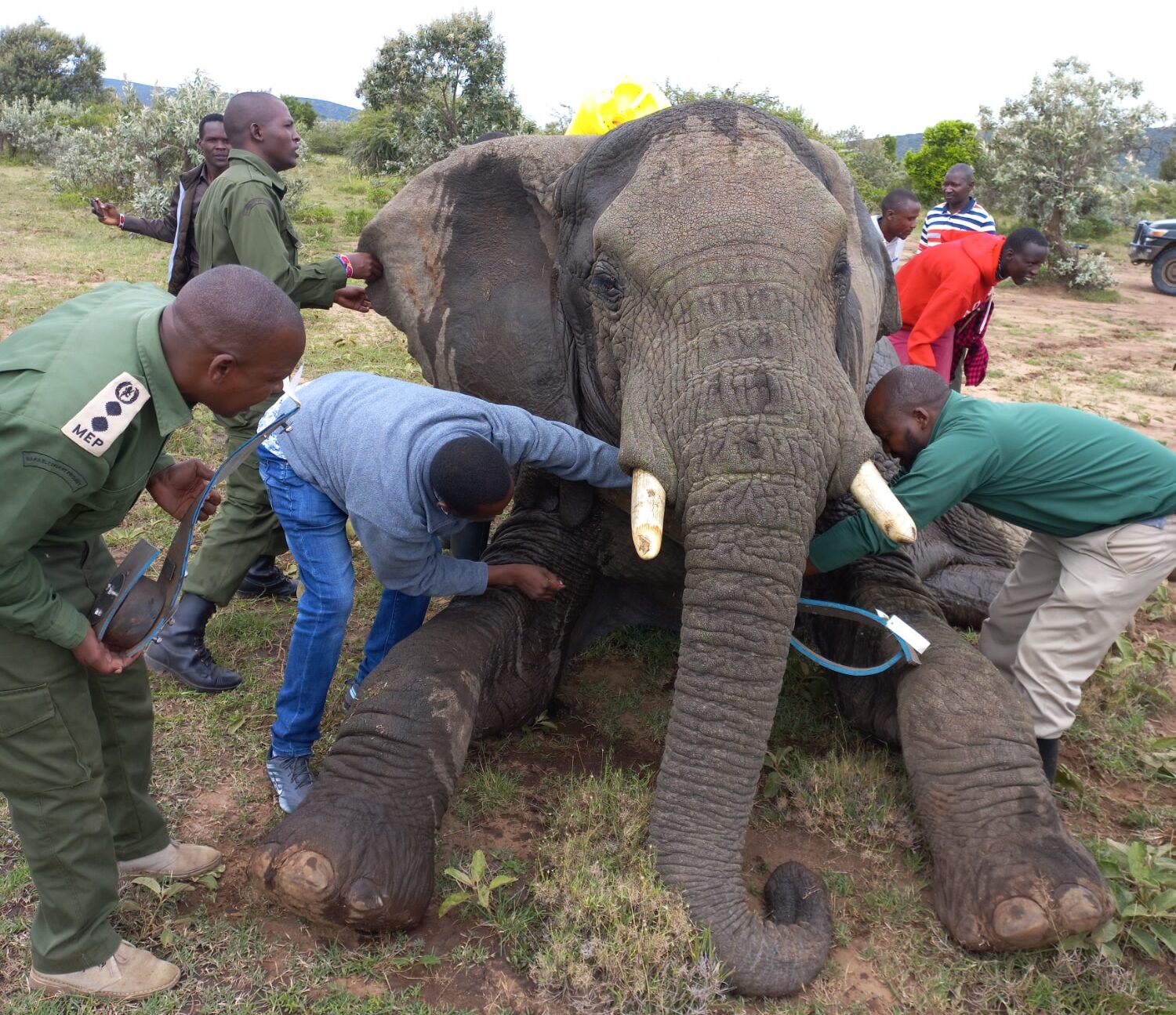

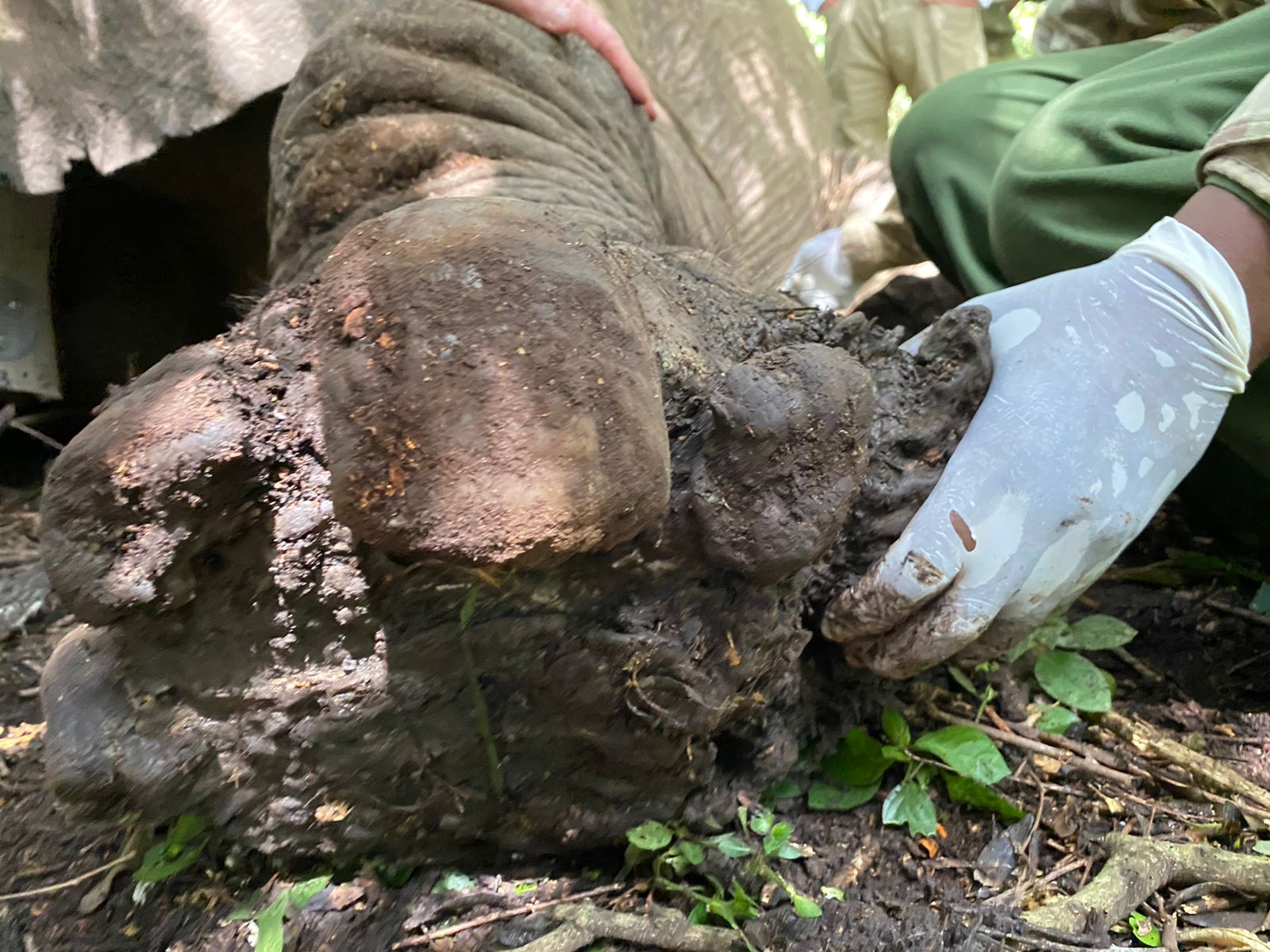

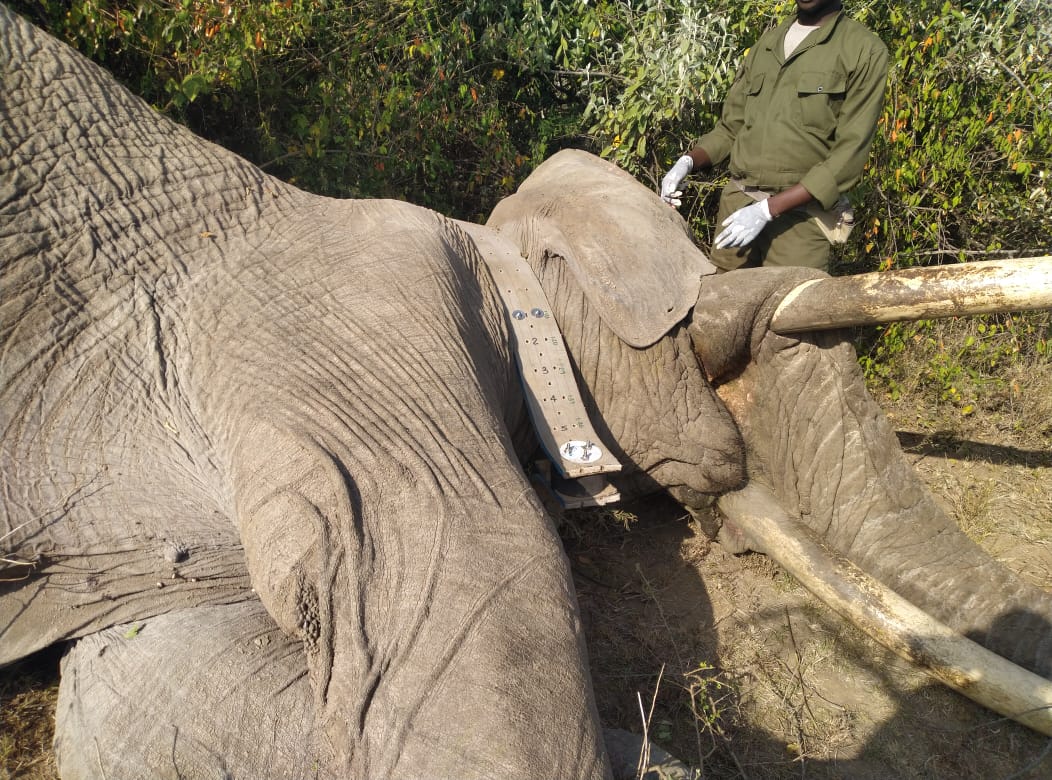

The MEP leased helicopter is a critical tool during collaring operations. It helps keep everyone safe on the ground while keeping elephants away from the collaring operation team as they work. Additionally, aerial reconnaissance is crucial for our organization to provide an eye in the sky for our ground teams and monitor collared elephants. It’s also crucial during elephant treatments when partnering with KWS and SWT. In June, the MEP “Foxtrot” ranger team spotted a bull elephant with an injury on his left side, near a rib. The KWS Vet Dr. Ephantus Ndambiri from the SWT Mara Mobile Vet Unit attended to the elephant, and successfully treated the spear wound. This bull was part of a pair that MEP rangers has responded to push out of community’s farms and remained to keep a close eye on him after treatment.
I flew a distance of 4,500 km in the MEP leased helicopter in the second quarter.
MEP rangers and other core staff participated in a training at headquarters covering drones. Drones are a low-cost solution to mitigate conflict and to conduct aerial reconnaissance and field research in the Maasai Mara. During the second quarter, a drone training lead by Expert Drones East Africa took place on MEP’s campus covering a range of topics to understand how to safely and effectively operate drones in the field. We’re happy to say that MEP rangers and staff successfully graduated from the program and have received their remote pilots’ licenses. A portion of the drone training was supported by our long-time partner Elephant Cooperation.

